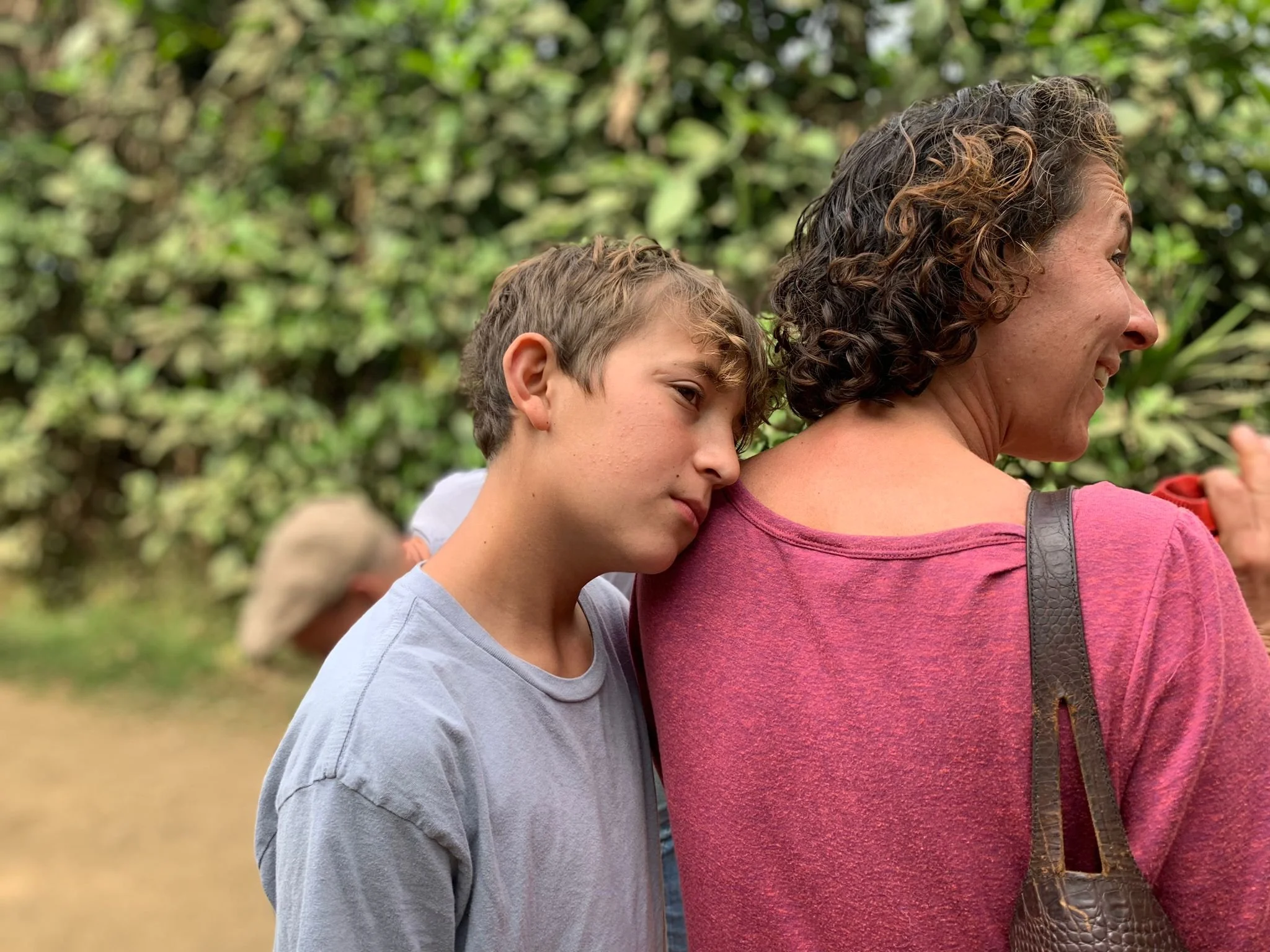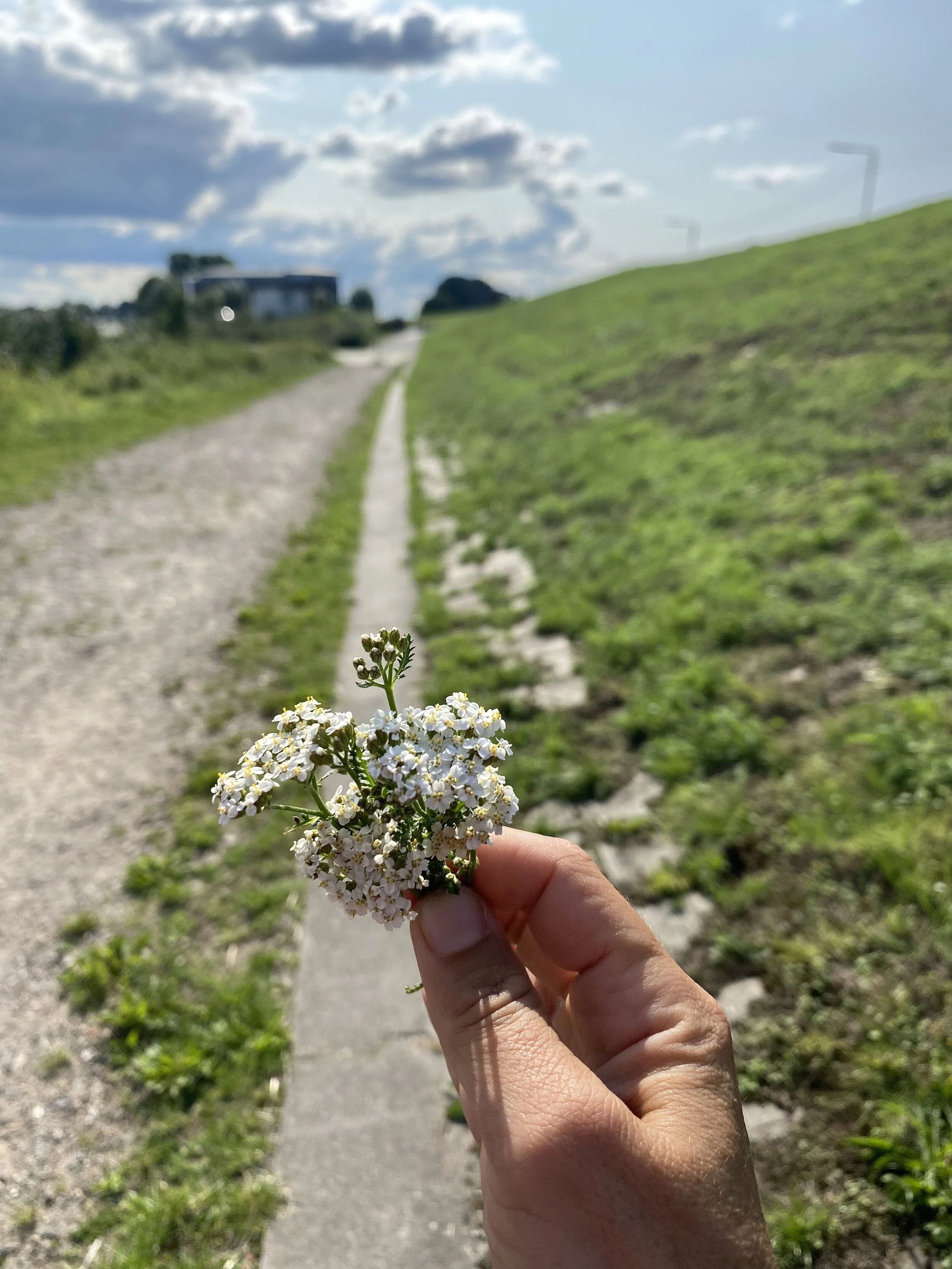Forgiveness
Get past the disconnect, anger and frustration…
This weekend I had a particularly bad day. A bitchy day. Everything that could, seemed to go wrong. We had news that our school would be closed and all three kids would be back home studying virtually, an important business deal seemed to be falling through and then my dog rolled in a serious amount of cow shit. He had chunks all over him. And I knew I would be tackling that one. I felt foul. Foul stinking words escaped my mouth, without me being able to censor. I was offending everyone in my family.
My 13-year-old asked if I was getting my period (a very good guess, as the same kind of raw uncensored emotionality springs out of my mouth around my period as well). He accepted the first three apologies I handed him that day. I was emotionally vulnerable and able to extend authentic apologies… but by the fourth apology, he said to me “I have forgiven you three times already today and don’t believe you will change anything!” Very astute. Very correct. I was lost in my emotion and feeling quite self-involved.
We both cooled off… a necessary step to arrive at any peace with my teenager whose sharp tongue and merciless determination to win the argument at any cost, (even when his reasoning doesn’t make sense). I can almost see his brain zero in on only making his points, even if those points seem to miss the big picture. But once we each get a little space, we both seem to see things as a little less life or death (fight or flight) and become open to a dialogue.
I needed to apologize. But really apologize. And I think the key was actually letting him know how important his hurt feelings are to me. It was also about the actual incident and how he felt, and that I could see exactly why my behavior impacted him… that I really owned my UNFAIRNESS (that’s important). I needed to connect with the underlying primary emotion of hurt and sadness (both his and mine). And that I would expose myself and my vulnerability to make things better.
This exposing my vulnerability seems to restore trust and the confidence that I (the offender) really do care. As I replay the unfolding of the asshole/unfair behavior, conflict, apology, vulnerability, and then reestablishment of trust… I see the connection between mother/son and our partners. The closeness of parents and children kind of parallels the closeness of significant others. (These are two types of relationships where we can treat the other person completely shitty and not lose them. We can expose ourselves to our core and still expect to be loved).
From this experience with my teenager, here are some important lessons to help you with your partner:
The only kind of sincere apology that works is the kind that: helps your partner heal their hurt feelings; inspires them to forgive you, and restores trust between you both.
Anything less is a waste of time because until your partner’s hurt is healed they’re not going to feel safe enough to open up to you again.
Understanding your partner’s fear is crucial to restoring broken trust. The anger and resentment felt after a betrayal of trust usually covers up a more vulnerable emotion:
FEAR.
-the fear that the one person we count on to have our back (that’s you), doesn’t.
-the fear that the one person we hoped would accept us exactly as we are, thinks we’re not enough.
-the fear that the one person we dreamed would stick around is going to abandon us.
-the fear that the one person we trust to take care of us when we can’t, won’t.
Each of these fears is some version of “I’m afraid that I can’t count on you to support me.”
Until you soothe these fears in your partner, real and meaningful forgiveness will not happen. Each of these fears is coded in your partner’s brain (in their amygdala) as a possible survival threat. This fear circuits back to the feeling with our caregivers that they won’t abandon us and can see us as we are and still love us.
Our brains have evolved to ensure our survival. That’s why these ‘support’ fears are unconsciously coded as survival threats in all of us. And as long as your partner perceives you as a possible threat to their survival, they’ll feel unsafe around you. They may not even know why they feel unsafe around you. Instead of opening up, their walls will protect their heart, keeping it off limits to you.
For your apology to be effective, it has to move your partner’s unconscious perception of you from the ‘threat’ category to the ‘supportive’ category. Judith Herman, professor of psychiatry at Harvard Medical School, says that traumatic wounds are especially severe when they involve a “violation of human connection.”
How could forgetting a dinner be a violation of human connection? Because that dinner represented proof of your partner’s importance to you – and you forgot. Of course, you didn’t forget intentionally, but that is irrelevant. Beneath their surface disappointment, perhaps your partner feels abandoned – their sense of emotional safety shattered.
First, you identify what you did that you regret having done. Then, you apologize for the impact your actions had on your partner. E.g. “ I’m sorry for having hurt you.”
Until you acknowledge the negative impact that you’ve had on them (in the above example it’s hurting them), your spouse won’t feel like you really care or understand the depth of their pain. Being forgiven and restoring broken trust are two completely different steps on the road to healing. Forgiveness is a conscious choice. Trusting (again) is not a choice. It’s a process that’s unconscious to us. We have control over who we choose to forgive. We don’t have much control over who we trust.
And until you restore the broken trust between you, your partner might forgive you, but they are not going to want to be close to you… and they are definitely not going to want to be intimate with you – physically or emotionally. The only way your partner can trust you again is with your help.
Because trust is an unconscious process (unlike forgiveness), it’s much harder for the injured partner to just choose to trust. How do you earn back your partner’s trust?
So, how do you demonstrate that you understand your partner’s pain and that their pain hurts you? You have to interview them about their pain, and then you tell your partner’s painful story back to them from their point of view so that they feel deeply that you understand them. The way to get this right is to allow yourself to actually FEEL their pain as if it were your pain when you’re telling their story.
Research shows that in order for your partner to forgive you, they need to know that you a) understand their pain and b) take it seriously.
*Assuming you are the injuring partner, you’re going to ask your partner about the pain or hurt that you have caused them.
*Ask them questions about what your hurtful actions meant to them about your bond.
*Demonstrate to your partner that you are emotionally available by holding their hand reassuringly and listening attentively while they share their hurt.
*Be patient, curious to learn, and listen attentively.
*Keep the focus of your attention on them so that you can step into their shoes and truly grasp what it was like to be them during this experience.
While your partner is sharing, show them that their pain hurts you. This could happen with words, tears, touch, or any other means of expression, but it cannot be faked.
In order to get this part right, you have to open your heart and allow your partner’s pain to move you. You must allow your softer emotions out. This may mean working hard to allow softness rather than trying to defend your actions or correct any inconsistencies in their story.
If it sounds like they are blaming you, they probably are. They are not trying to attack or hurt you. They’re trying to share their own hurt and pain, so don’t take it personally.
Just listen curiously to their emotional experience and allow it to sink in.
Now, you’re going to tell your partner’s painful story back to them from their point of view.
Your intention is to demonstrate that you a) understand their pain and b) are hurt by it.
Demonstrating your own pain at having hurt your partner shows them that you: care about their pain; understand the impact it has had on them; and are less likely to repeat your hurtful actions in the future.
Once you’re done, only then is it time to express your sadness, and remorse or regret for your actions. Share why you’re remorseful so that they can feel it. Don’t rush this part. Take your time.
Then say something like: “I am so sorry that I’ve hurt you.” Whatever you do, don’t say “I apologize.”Those words are too formal and distance you from the impact you’ve had on your partner. Crooked corporations apologize like that and don’t mean it.
Loving partners say “I’m so sorry for ____” and mean it.
Let your partner know that you are committed to doing whatever needs to be done to make things right with them.
Absolutely no justifying, defending, or blaming.
So what do you think, do our children, parents, and partners somehow share this intimate bubble of attachment with us? Is this group different from the others in our lives? Do siblings belong there?
Are you looking for help with your relationship? Do you feel that a relationship coach could help you working on your couples skills? Is communication an issue? Have you ever considered couples therapy or counseling? As a psychotherapist and relationship coach, I am uniquely positioned to help you through these moments of disconnect and conflict.
__
Learn more about my approach to life consulting and relationship coaching here or get in touch for your free 30-minute consultation here! Don’t forget to follow along @LilyManne on social for more regular updates!


